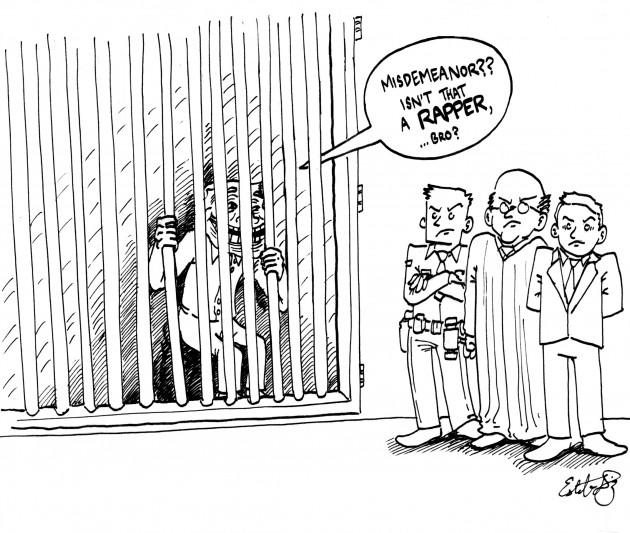
Free speech and the Internet are under attack once again.
Arizona House Bill 2549 looks to amend the telephone harassment section of the state’s anti-stalking law to include online communication of today.
It doesn’t sound so bad initially, does it? Of course the government should help prevent people from being stalked, either through physical or electronic means.
But the government tried to legislate the Internet using language far too vague, possibly in a way that could hinder free speech.
The clause in question states:
“It is unlawful for any person, with intent to terrify, intimidate, threaten, harass, annoy or offend, to use any electronic or digital device and use any obscene, lewd or profane language or suggest any lewd or lascivious act, or threaten to inflict physical harm to the person or property of any person.”
In other words, in the state of Arizona, Internet “trolling” could lead to a Class 1 Misdemeanor, punishable by a $2,500 fine and up to six months in jail.
For those who have not used the Internet for more than an hour, it is filled with forums other websites where people post some of the most terrible things in the world because they stand behind the anonymity of a computer screen.
Aside from the trolling, the words “harass, annoy or offend…” are potentially dangerous. Imagine if someone posts a politically-charged status on Facebook with which you disagree. It may offend you, and potentially you could report your friend for a Class 1 Misdemeanor.
And who decides what kind of language is intended to offend? What offends one person may not necessarily offend another, but it only takes one person’s judgment for this bill to put someone behind bars.
The language in this bill is so vague that anything posted, from a Facebook status, tweet, Youtube comment, forum post or any method of electronic communication open to public view falls into the parameters of the bill.
The original law in Arizona was designed for telephones, which makes sense because the “obscene, lewd or profane language” is within a one-on-one conversation, and it’s clear who the victim is.
The proposed bill would amend the language from telephone to any electronic or digital device, which is completely different. Any number of people can be offended or feel annoyed by a Facebook status even if the status is not directed toward a specific individual.
The bill was created to stop online bullying, which does need to happen. Kids are in more danger of being teased and abused by their classmates than they were before the advent of the Internet. However, good intentions do not make a good bill.
The Internet is just like any other topic the government legislates. Research needs to be done before a bill is created. A lawmaker would not write a bill concerning space programs without consulting NASA officials and researching the subject (hopefully). The Internet is no different. Through surveys, research or other means, we need an idea of where and how often people are being harassed on the Internet.
The craziest thing is that this bill was unanimously approved by the Arizona Senate before being stopped in the House.
Hopefully this bill does not go through, at least without some serious adaptations to its languages.






